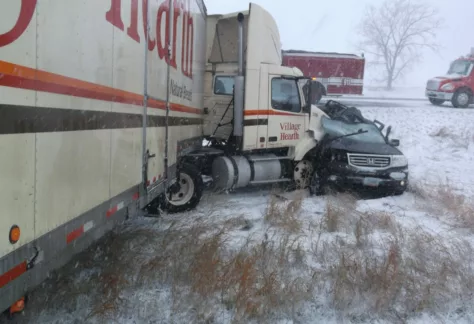This month, the Federal Motor Carrier Safety Administration reminded bus companies to check the inflation of tires, which is particularly critical during hot weather. The Code of Federal Regulations prohibits buses, also called motor coaches, from operating with tires filled over the maximum permitted inflation, nor may they operate with dangerously worn tires.
Car, truck and bus drivers are all reminded to check proper inflation of tires, tread depth, uneven tire wear, integrity of inflation stems, lug nut securement and general tire condition.

Image by Peter H from Pixabay
Car, truck and bus drivers are all reminded to check proper inflation of tires, tread depth, uneven tire wear, integrity of inflation stems, lug nut securement and general tire condition.
The full advisory follows:
Motorcoach Safety Advisory Bulletin: Exceeding Tire Load Ratings
The Federal Motor Carrier Safety Administration (FMCSA)The U.S. federal agency that regulates the trucking industry. has identified a critical safety concern related to the safe operation of motorcoaches. In these days of increased travel on motorcoaches, some motorcoaches are being loaded with high numbers of passengers and their associated baggage, potentially resulting in loads that are near the safety capacity of the motorcoach tires. FMCSA is publishing this advisory bulletin to raise awareness on this issue, and to increase the safety of motorcoach operations and potentially save lives. While applicable to all motorcoaches, this issue has particular implications to double deck buses (with high passenger/cargo loading) used for intercity transportation.
The Agency believes that motorcoach operators must consider the maximum tire load capacity, adequate speed rating, and an adequate safety margin when carrying maximum passenger and luggage loads. The Federal Motor Carrier Safety Regulations, 49 C.F.R. § 393.75, prohibit motorcoaches from carrying a weight greater than that marked on the tire and prohibit operating a motorcoach with damaged or worn tires.
While this regulatory prohibition applies to all commercial motor vehicle operations, recent investigations suggest that motorcoaches utilizing the double deck design may be susceptible to overloading. One common configuration utilizes three axles with a gross vehicle weight rating (GVWR)This is the maximum weight that a vehicle, such as a truck or trailer, can safely operate at, including its own weight plus the weight of passengers and cargo. Manufacturers set the GVWR to ensure vehicle integrity and operational safety under load, preventing overloading that could lead to mechanical failures or accidents. of between 53,000 and 61,000 pounds. A fully loaded double deck motorcoach at or near the maximum number of passengers and a maximum luggage load could exceed this GVWR, one or more gross axle weight limits, or the tire weight ratings.
Safety demands that operators of these motorcoaches have policies and procedures in place to monitor the loading of their vehicles, and take appropriate action (such as reduce passenger/cargo loading or increase tire pressure) to ensure that they remain within the allowable tire weight rating and State vehicle weight limits. FMCSA is working with State officials to increase enforcement of these important safety provisions of Federal and State laws.
A tire on a motorcoach loaded beyond its weight rating, operated at highway speeds for a significant period of time, is more likely to overheat and fail, possibly placing the lives of passengers and other motorists at risk. This concern is heightened when motorcoaches are operating in the extremely hot temperatures experienced across the nation this year, as drought and high heat conditions have plagued a large portion of the United States. Due to this serious safety concern, if FMCSA determines that motor carriers have violated applicable tire loading restrictions, FMCSA may declare those carriers and/or their vehicles to be an imminent hazard and, as such, place them immediately out-of-service pursuant to 49 U.S.C. § 521.
If you have questions concerning this issue, please contact the FMCSA Commercial Passenger Carrier Safety Division via email at [email protected].
Federal Motor Carrier Safety Administration
Referrals & Co-Counsel
Involved in a Crash?
No other law firm knows trucks quite like us. Our trucking law expertise and trial experience allow us to win multi-million-dollar results year after year.
Our team of truck accident attorneys works tirelessly to help your family find justice in the wake of a catastrophic truck crash.
Referrals & Co-Counsel
No other law firm knows trucks quite like us. Our trucking law expertise and trial experience allow us to win multi-million-dollar results year after year.
Involved in a Crash?
Our team of truck accident attorneys works tirelessly to help your family find justice in the wake of a catastrophic truck crash.
Michael Leizerman is an attorney who handles bus and truck accident litigation. He frequently speaks on these subjects to other lawyers. You can contact him at 866-343-5779.


